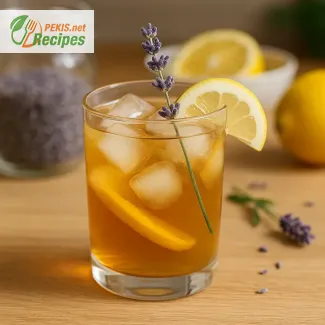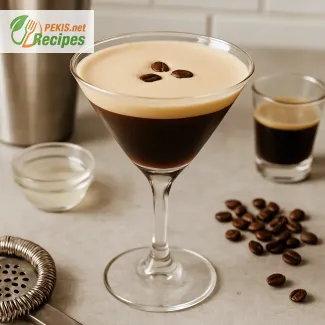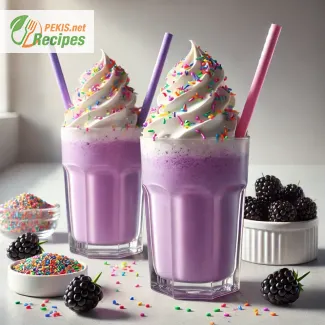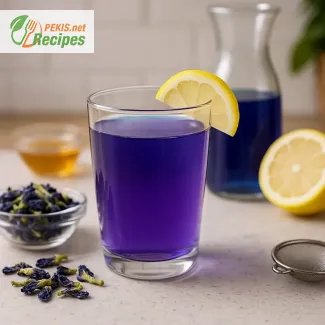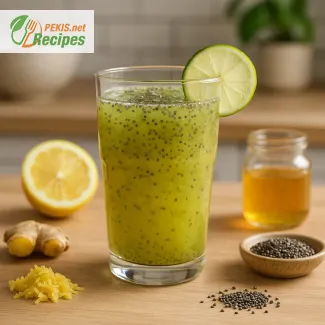
Natural hydration and vitality: how to craft your own energy drink
A smarter way to stay energized without synthetic additives
In a world increasingly saturated with sugar-laden commercial energy drinks, more health-conscious individuals are seeking a natural alternative that supports both hydration and stamina without compromising their well-being. A homemade energy drink offers precisely that: a customizable, nutrient-rich beverage tailored to your body's needs and your personal taste preferences. Whether you're preparing for a workout, recovering after a long day, or simply looking for a gentle natural energy boost, crafting your own drink is a sustainable and rewarding solution.
Unlike processed store-bought options, homemade energy drinks can be built using real ingredients like citrus fruits, natural electrolytes, and unrefined sweeteners that nourish the body without artificial additives. They provide not only immediate refreshment, but also longer-lasting effects thanks to ingredients that hydrate, stimulate and replenish.
Why choose a homemade energy drink over commercial options
Most energy drinks on the market rely heavily on caffeine, high-fructose corn syrup, and chemical preservatives. While they might deliver a rapid jolt of energy, they often lead to undesirable crashes, dehydration, and long-term health risks. By contrast, a DIY energy drink offers a balanced approach: you can include natural sources of caffeine like green tea or yerba mate, pair them with lemon juice, sea salt, and honey or maple syrup, and achieve a clean, controlled lift.
Hydration is the key benefit here. Many of the ingredients in a homemade recipe contribute to electrolyte balance, which is vital for muscle function and endurance. Citrus, coconut water, and unprocessed salt deliver essential minerals such as magnesium, potassium, and sodium that help the body maintain energy levels and perform optimally.
The essential building blocks of a natural energy drink
Crafting your own energy beverage starts with choosing the right hydrating base. Filtered water or coconut water are excellent options, as they provide a clean, mineral-rich foundation. For taste and functionality, you can add:
- Fresh lemon or lime juice for vitamin C and alkalinity
- Raw honey or agave syrup for a gentle glucose source
- A pinch of unrefined sea salt for sodium and trace minerals
- Herbal infusions such as hibiscus or peppermint to enhance flavor and antioxidant content
- Caffeinated elements like matcha or cold-brewed green tea for sustained alertness
The beauty of the homemade energy drink lies in its flexibility. You control the sweetness, intensity, and nutritional profile. Whether you prefer it citrusy and light, or more herbal and earthy, the ingredients can be tuned to suit your lifestyle and physical activity.
Energy support for workouts, focus, or daily stamina
Whether you're heading out for a run or battling a long day of meetings, your body needs more than just fluids. A homemade energy drink supports both physical and mental endurance, helping you stay sharp, strong, and hydrated throughout the day. The sugars you choose — such as natural syrups or fruit juice concentrates — provide quick energy without the blood sugar spikes linked to refined sugars.
If your goal is mental clarity, options like green tea or ginseng extracts can be added for enhanced cognitive support. For athletic performance, combining coconut water with a touch of citrus and Himalayan salt helps replenish what's lost through sweat, without relying on synthetic sports drinks.
Clean energy for the modern lifestyle
One of the strongest benefits of making your own energy drink is transparency. You know exactly what goes into your beverage, from the first drop of fresh-squeezed lemon to the final shake of sea salt. There are no preservatives, no synthetic colors, and no hidden ingredients — just pure hydration and nourishment, the way nature intended.
This type of drink is ideal for those who follow a plant-based, paleo, or whole-food diet, as it avoids processed sugars, additives, and dairy. It also supports a more sustainable lifestyle, reducing packaging waste and plastic use that comes with mass-produced energy drinks.
Ideal moments to enjoy a homemade energy drink
Timing plays a crucial role in maximizing the effect of your drink. Enjoy it:
- First thing in the morning to kick-start metabolism
- 30 minutes before a workout to fuel performance
- After physical activity to support recovery and rehydration
- During travel to fight fatigue and maintain focus
- Mid-afternoon to beat the energy slump without reaching for coffee
Each variation of your homemade recipe can serve a different purpose — from energizing pre-workout blends to soothing post-yoga recovery drinks.
The perfect foundation for experimentation
A homemade energy drink recipe isn’t just about following instructions — it’s an invitation to explore flavors and functions that resonate with your body. Try experimenting with ingredients like apple cider vinegar, chia seeds, or adaptogens such as ashwagandha or rhodiola rosea, depending on your wellness goals.
For those who like a more adventurous touch, incorporating superfoods like spirulina or maca powder can add both nutritional benefits and a unique profile. This versatility makes the homemade energy drink an excellent companion for both fitness enthusiasts and everyday health seekers.
A ritual that energizes body and mind
Beyond the physical benefits, the act of preparing your own beverage can become a mindful ritual. Selecting your ingredients, squeezing the citrus, infusing herbs — these small acts build awareness and intention into your routine. They help you connect with your body's needs and build healthier habits over time.
With a bit of practice and creativity, this simple daily habit can become one of the most impactful upgrades to your wellness routine.
- Juice the fruits: Squeeze the lemon and lime into a small bowl. Remove seeds and strain to ensure clarity.
- Mix the base: In a large jug, combine the filtered water and coconut water. Stir gently.
- Add sweetener and salt: Stir in the honey until fully dissolved. Then add sea salt and mix again.
- Spice it up: Add grated ginger and matcha powder. Stir thoroughly to combine all ingredients evenly.
- Boost with chia: Add chia seeds and let the drink sit for 5–10 minutes to allow the seeds to swell slightly.
- Chill and serve: Pour into glasses with or without ice, as desired. Stir before drinking to redistribute chia seeds.
Smart ingredient swaps to perfect your homemade energy drink
Tailoring the recipe for enhanced flavor, nutrition, and functionality
Making your own homemade energy drink already sets you ahead in terms of health and customization. But refining the recipe with small adjustments can take your drink from good to exceptional — both in taste and performance. From boosting electrolytes naturally to creating flavor balance and adjusting sweetness or caffeine levels, every tweak can contribute to a better, more personalized result.
Adjusting ingredients to match your lifestyle
While the core recipe is already packed with natural hydration, electrolytes, and plant-based energy, you can tailor it further depending on your activity level, health goals, or even the season.
Replacing honey with other natural sweeteners
If you're looking to make the recipe vegan or lower the glycemic impact, consider swapping honey for:
- Maple syrup: Adds a warm, earthy flavor and is rich in zinc and manganese.
- Agave syrup: Provides a more neutral sweetness, ideal for those sensitive to strong flavors.
- Date syrup or blended soaked dates: Introduces a caramel-like tone and offers extra fiber and potassium.
These changes can slightly alter the viscosity and flavor profile, but the result will remain delicious and nutrient-dense.
Enhancing flavor depth with herbal infusions
Adding a touch of infused herbs or teas can elevate both the aroma and functionality:
- Hibiscus tea adds tartness, a beautiful red hue, and antioxidants.
- Peppermint provides a refreshing aftertaste and supports digestion.
- Green tea or yerba mate introduces a subtle caffeine kick without harsh peaks or crashes.
Allow the herbs to steep in the water before mixing in other ingredients for a well-integrated flavor.
Upgrading the nutritional content
The drink is already rich in vitamin C, potassium, and natural sugars, but further upgrades can turn it into a functional elixir tailored to your goals.
Add superfoods for extra potency
- Maca powder: Great for endurance and hormonal balance, with a slightly malty taste.
- Spirulina: Adds a strong green hue and boosts protein and B-vitamins, though its flavor is bold.
- Ashwagandha: A known adaptogen that may help manage stress and improve stamina.
Use these in moderation, as their strong flavors can easily dominate the drink.
Include citrus zest for enhanced flavor and antioxidants
Instead of discarding the peels, grate a small amount of lemon or lime zest into the drink. This introduces essential oils rich in limonene, known for their anti-inflammatory and mood-lifting properties, and gives the drink a fragrant lift.
Avoiding common mistakes
Even natural drinks have room for error. Here’s what to avoid for the best experience:
Overloading sweeteners
Adding too much honey or syrup can lead to an overpoweringly sweet taste and spike blood sugar levels. Stick to the recommended amounts and balance with acidity.
Skipping salt or using table salt
Unrefined sea salt or Himalayan pink salt provides trace minerals your body needs during activity. Regular table salt, on the other hand, is stripped of most beneficial minerals and contains additives.
Ignoring ingredient solubility
Some ingredients like matcha or chia seeds require extra mixing or resting time. Let chia absorb liquid for at least 5–10 minutes, and whisk matcha properly to avoid clumps and enhance bioavailability.
Making it seasonally adaptable
One of the key benefits of homemade beverages is how easy they are to adapt:
- In summer, increase coconut water for better cooling and hydration.
- In winter, switch to herbal infusions like ginger-cinnamon tea for warming and immunity-boosting effects.
- For athletes, increase salt and potassium sources like citrus juice and a small amount of molasses.
This versatility ensures you can enjoy the drink year-round with maximum benefit.
Supporting sustainability and mindful preparation
Preparing your own drink means fewer plastic bottles, no preservatives, and a deeper connection with what your body consumes. Choosing organic citrus, local honey, and reusable bottles turns this into a routine that benefits both your health and the environment.
Home preparation also encourages mindfulness. From squeezing lemons to grinding ginger, each step reinforces intentional consumption — something store-bought products cannot offer.
Crafting your personal flavor signature
Finally, embrace the opportunity to make this drink truly your own. Try combinations like:
- Orange and turmeric for anti-inflammatory properties
- Grapefruit and mint for a detoxifying summer version
- Lime and cayenne for a spicy metabolic boost
By understanding how ingredients interact with the body and with each other, your homemade energy drink becomes more than a beverage — it’s a daily act of self-care, tailored by you.
Allergens present in the recipe:
- Honey (not suitable for vegans or infants under 1 year)
- Chia seeds (can trigger reactions in people allergic to sesame or mustard)
Gluten: This recipe is gluten-free.
Suggestions for allergen-free alternatives:
- Replace honey with maple syrup or agave syrup to make it vegan-friendly.
- Remove chia seeds if allergic and replace with ground flaxseeds or omit entirely.
Vitamins and minerals per serving (approximate):
- Vitamin C: 30 mg – supports immune function and collagen production
- Potassium: 350 mg – regulates fluid balance and muscle contractions
- Magnesium: 20 mg – contributes to energy production and nerve function
- Calcium: 40 mg – supports bone strength and cellular signaling
- Iron: 0.7 mg – important for oxygen transport and energy metabolism
Antioxidants per serving (approximate):
- Matcha catechins: 30 mg – help reduce oxidative stress and inflammation
- Vitamin C (from lemon/lime): 30 mg – powerful water-soluble antioxidant
- Gingerol (from ginger): 10 mg – supports digestion and has anti-inflammatory effects
- Polyphenols (from chia seeds and matcha): 50 mg – contribute to heart health and cellular protection
